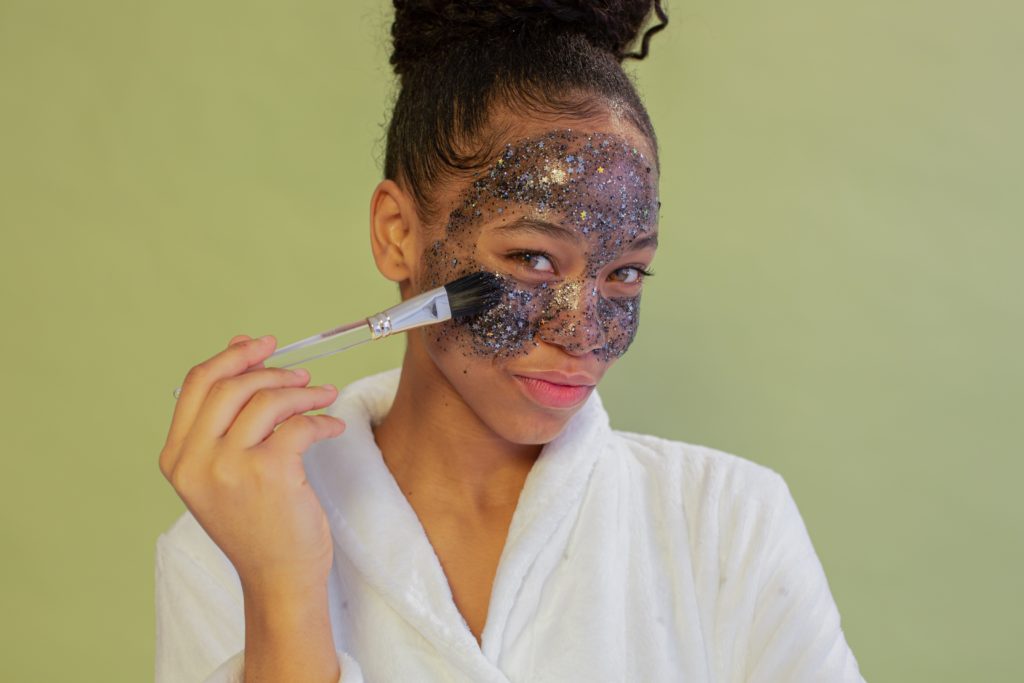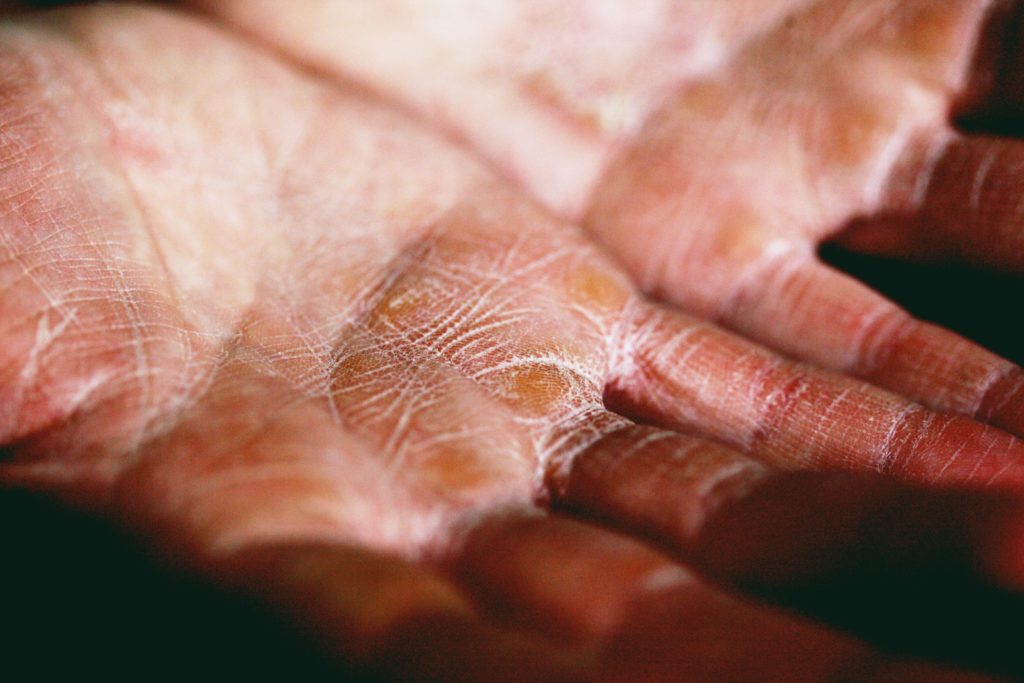We all want to have healthy, glowing skin, but achieving it can be challenging. From acne breakouts to sun damage, many factors can impact the health and appearance of our skin. However, some people out there seem to have effortlessly flawless skin. What’s their secret?
It turns out that there are certain habits that people with great skin consistently practice. By adopting these habits into our skincare routine, we can improve the health and appearance of our skin too.
In this article, we’ll explore the five habits of people with great skin and provide tips on incorporating them into our daily routine.
1. Consistent Cleansing
Consistent cleansing is one of the most important habits people with great skin tend to follow. Effective cleansing helps to remove dirt, oil, and impurities from the skin, which can clog pores and lead to breakouts.
When done regularly, cleansing can also help maintain a healthy skin barrier, which is essential for keeping the skin hydrated and protected from environmental stressors.
To practice consistent cleansing, it’s important to choose a gentle cleanser that is appropriate for your skin type. Avoid harsh, stripping cleansers that can damage the skin’s natural barrier and cause irritation.
You should cleanse your skin twice daily, once in the morning and once at night, to remove any makeup, dirt, or sweat accumulated throughout the day.
When cleansing your skin, it’s important to use the right technique. Begin by wetting your face with lukewarm water, then apply a small amount of cleanser to your fingertips and gently massage it onto your skin in circular motions.
Be sure to focus on areas that tend to be oilier or more prone to breakouts, such as the T-zone (forehead, nose, and chin).
Once you’ve finished cleansing, rinse your face thoroughly with lukewarm water to remove any residual cleanser. Pat your skin dry with a clean towel, taking care not to rub or tug at the skin.
If you have dry skin, follow up with a gentle, hydrating toner or moisturizer to help lock in moisture and keep your skin soft and supple.
2. Sun Protection
Sun protection is an essential aspect of maintaining healthy skin. Overexposure to the sun’s ultraviolet (UV) rays can cause significant damage to the skin, including sunburn, premature aging, and an increased risk of skin cancer.
To protect the skin from these harmful effects, it is important to minimize sun exposure and use sun protection measures.
Sunscreen is one of the most effective ways to protect the skin from the sun. Sunscreen should be applied generously to all exposed skin at least 15 minutes before going outside and reapplied every two hours or after swimming or sweating.
Choosing a sunscreen with an SPF of at least 30 and broad-spectrum protection is important, which means it protects against both UVA and UVB rays.
In addition to using sunscreen, other sun protection measures can also be taken. Wearing protective clothing, such as long-sleeved shirts, pants, and wide-brimmed hats, can help to shield the skin from the sun’s rays. It is also important to seek shade during peak sun hours, typically between 10 a.m. and 4 p.m.
While it is important to take steps to protect the skin from the sun, it is also important to be mindful of other factors that can increase the risk of skin damage.
This includes avoiding tanning beds, which can expose the skin to high levels of UV radiation, and being aware of medication or skin care products that can increase sensitivity to the sun.
3. Healthy Diet
Maintaining a healthy diet is essential for overall health and wellness, and it can also significantly impact the appearance and health of your skin. Eating a balanced diet that is rich in nutrients can help improve skin texture, reduce inflammation, and prevent or treat various skin conditions.
To promote healthy skin through diet, it’s important to focus on consuming various nutrient-dense foods such as fruits, vegetables, whole grains, lean protein, and healthy fats. These foods provide the vitamins, minerals, and antioxidants your skin needs to function properly and stay healthy.
Some specific nutrients that are particularly beneficial for skin health include:
- Vitamin C: Helps to produce collagen, which keeps skin firm and supple. Foods high in vitamin C include citrus fruits, strawberries, kiwi, bell peppers, and broccoli.
- Vitamin E: An antioxidant that helps to protect the skin from damage caused by free radicals. Good sources of vitamin E include nuts, seeds, and vegetable oils.
- Omega-3 fatty acids: Help to reduce inflammation and improve skin hydration. Found in fatty fish, nuts, and seeds.
- Zinc: Plays a role in skin healing and helps to regulate oil production. Good sources of zinc include oysters, beef, chicken, and beans.
- Staying hydrated is also important by drinking plenty of water throughout the day. Water helps to flush toxins out of the body and keep the skin hydrated and healthy.
On the other hand, it’s best to avoid or limit processed foods, sugary drinks, and foods high in saturated and trans fats, as they can contribute to inflammation and negatively impact skin health. A healthy diet and other good skincare habits, such as consistent cleansing and sun protection, can help you achieve and maintain glowing skin.
4. Hydration
Hydration is essential to maintaining good health and plays a vital role in maintaining healthy skin. Water makes up a significant portion of our body and is necessary for the proper functioning of our organs and cells. Regarding skin health, hydration helps keep the skin soft, supple, and moisturized.
When the body is dehydrated, the skin can become dry, dull, and flaky. It can also exacerbate existing skin conditions such as eczema and psoriasis. Drinking enough water and staying hydrated can help to prevent these issues and keep the skin looking and feeling healthy.
In addition to drinking water, there are other ways to stay hydrated, such as eating water-rich foods like fruits and vegetables. It’s also important to avoid dehydrating beverages like alcohol and caffeine, as they can cause the body to lose water.
5. Skincare Routine
A skincare routine is a series of steps a person follows to care for their skin. It typically involves cleansing, moisturizing, and protecting the skin from sun damage. Establishing a skincare routine can help keep the skin looking healthy and radiant.
The first step in a skincare routine is cleansing. This involves using a gentle cleanser to remove dirt, oil, and other impurities from the skin. Choosing a cleanser that is appropriate for your skin type is important, as using the wrong type of cleanser can lead to dryness or irritation.
After cleansing, the next step is to moisturize. This involves applying a moisturizer to the skin to help prevent dryness and to keep the skin hydrated. Again, choosing a moisturizer that is appropriate for your skin type is important, as using the wrong type of moisturizer can lead to oiliness or breakouts.
The final step in a skincare routine is to protect the skin from sun damage. This involves using sunscreen with a minimum SPF of 30 to protect the skin from harmful UV rays. Sun damage can lead to premature aging, wrinkles, and even skin cancer, so it is important to protect the skin from the sun daily.
In addition to these basic steps, other skincare products can be incorporated into a skincare routine, such as serums, toners, and masks. These products can help address specific skincare concerns, such as acne or hyperpigmentation.
Establishing a consistent skincare routine can take time and experimentation to find what works best for your skin. However, with patience and diligence, a skincare routine can help keep the skin healthy, glowing, and youthful-looking.
Conclusion
Having great skin requires consistent effort and the adoption of healthy habits. By implementing these five habits – consistent cleansing, sun protection, a healthy diet, hydration, and a skincare routine – you can achieve healthy, glowing skin.
It may take time and patience to see results, but with dedication and consistency, you can make these habits a part of your daily routine and reap the benefits of healthy skin.
Remember, good skincare habits are not just for cosmetic purposes but also essential for maintaining overall health and well-being. So, start small, make gradual changes, and stick to it – your skin will thank you for it!



